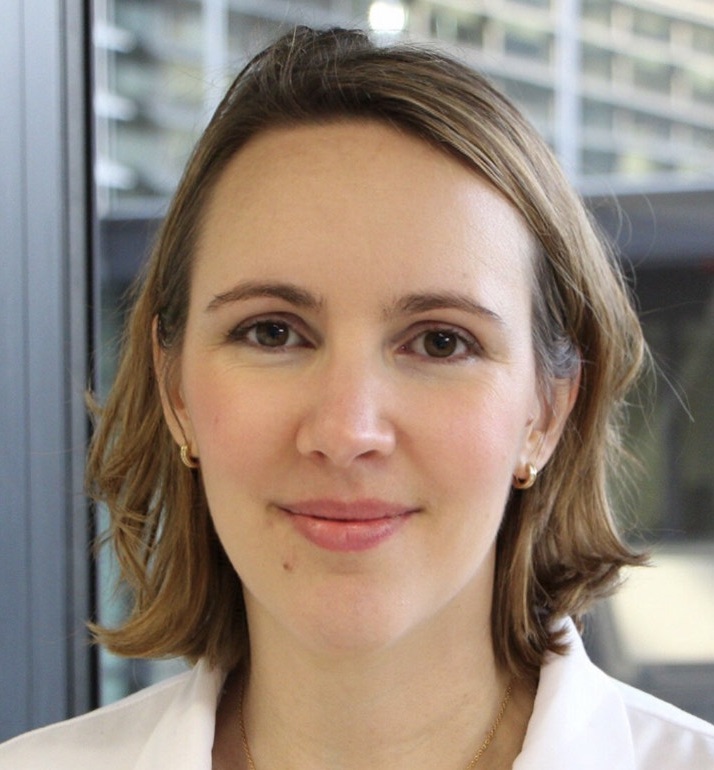touchPANEL DISCUSSION What is the new normal for the treatment of multiple sclerosis in the age of COVID-19?
A panel of internationally renowned experts provide an update on MS treatment and assessment practices in the context of COVID-19.
For subtitles in French, German, Italian, Russian and Spanish, please click [CC] on the video player below.

Prof. Aaron Miller
Corinne Goldsmith Dickinson Center for Multiple Sclerosis, Icahn School of Medicine at Mount Sinai, New York, NY, USA
CHAIR
Panelists:
Introduction
Chair Prof. Aaron Miller introduces the expert panel and agenda for this discussion on the treatment of MS in the age of COVID-19.
view bio and disclosures 1/4 Next ChapterWhat are the clinical characteristics and outcomes in patients with COVID-19 and MS?
The panel discusses concerns, both clinician- and patient-related, surrounding the risk of COVID-19 during the pandemic for patients with MS; they also review data clarifying the key factors to consider when assessing patient risk for severe COVID-19 outcomes.
view bio and disclosures 2/4 Next ChapterHow can we optimize the use of DMTs in patients with MS during the COVID-19 pandemic?
The panel discusses updates to treatment guidelines based on experience to-date with COVID-19 including considerations for patients with MS on COVID-19 vaccination.
view bio and disclosures 3/4 Next ChapterHow has the availability of telemedicine impacted the management of MS?
The panel discuss their experiences with remote service provision during the COVID-19 pandemic and the likely evolution of its role going forward.
view bio and disclosures 4/4 Take CE/CME TestOverview & Learning Objectives
Overview
In this activity, experts in multiple sclerosis (MS) will discuss current understanding of risk factors for COVID-19 infection in patients with MS, implications for disease-modifying therapy prescription and use, before concluding with a discussion of the impact of remote service provision during the pandemic and how it will likely evolve going forward.
This activity has been jointly provided by Oakstone and touchIME for touch NEUROLOGY. Oakstone Publishing is accredited by the ACCME to provide continuing medical education to physicians. read more
Target Audience
This activity has been designed to meet the educational needs of neurologists, MS specialists, neurology nurses and primary care physicians.
Disclosures
Oakstone Publishing has assessed conflict of interest with its faculty, authors, editors, and any individuals who were in a position to control the content of this CME activity. Any identified relevant conflicts of interest have been mitigated. Oakstone Publishing’s planners, content reviewers, and editorial staff disclose no relationships with ineligible entities.
Faculty
Prof. Aaron Miller discloses: Consulting fees from AbbVie, Accordant Health Services (CVS Caremark), Adamas, Banner Life Sciences, Biogen, Bristol-Myers Squibb/Celgene, CorEvitas, EMD Serono, Janssen, Mapi Pharma, Novartis, Roche-Genentech, Verana Health and Viatris (Mylan); Research support from Adamas, CorEvitas, Genzyme/Sanofi, MedDay, Novartis and Roche/Genentech; and Speaker bureau fees from Alexion, Biogen, EMD Serono and Genentech (unbranded disease awareness programs/unbranded journal club only).
Dr Céline Louapre discloses: Consulting fees from Biogen, Novartis, Roche and Merck; Research support from Biogen; and Speaker fees from Biogen, Sanofi and Teva.
Dr Wallace Brownlee discloses: Consulting/advisory board fees from Biogen, Merck, Mylan, Novartis, Roche and Sanofi; and Speaker fees for educational activities from Biogen, Merck, Mylan, Novartis and Roche.
Content reviewer
Murray Yarbrough, MD, FACP has no financial interests/relationships or affiliations in relation to this activity.
Touch Medical Director
Christina Mackins-Crabtree has no financial interests/relationships or affiliations in relation to this activity.
Requirements for Successful Completion
This activity has been planned and implemented in accordance with the accreditation requirements and policies of the Accreditation Council for Continuing Medical Education (ACCME) through the joint providership of Oakstone Publishing and touchIME. Oakstone Publishing is accredited by the ACCME to provide continuing medical education for physicians.
The European Union of Medical Specialists (UEMS) – European Accreditation Council for Continuing Medical Education (EACCME) has an agreement of mutual recognition of continuing medical education (CME) credit with the American Medical Association (AMA). European physicians interested in converting AMA PRA Category 0.5 Credit™ into European CME credit (ECMEC) should contact the UEMS (www.uems.eu).
Oakstone Publishing designates this enduring material for a maximum of 0.5 AMA PRA Category Credits™. Physicians should claim only the credit commensurate with the extent of their participation in the activity.
In order to receive credit for this activity, participants must review and complete the post-test and evaluation form. Statements of credit are awarded upon successful completion of the post-test and evaluation form.
Date of original release: 27 July 2021. Date credits expire: 27 July 2022.
Learning Objectives
After watching this activity, participants should be better able to:
- Describe the COVID-19 symptom profiles in patients with multiple sclerosis
- Summarize the data describing how best to maintain use of disease-modifying therapies within the current pandemic
- Explain how to run a remote service under the restrictions of the current pandemic
Faculty & Disclosures

Prof. Aaron Miller
Corinne Goldsmith Dickinson Center for Multiple Sclerosis, Icahn School of Medicine at Mount Sinai, New York, NY, USA
Prof. Aaron Miller, MD, is the Medical Director of the Corinne Goldsmith Dickinson Center for Multiple Sclerosis and a Professor of Neurology at the Icahn School of Medicine at Mount Sinai. read more
For 23 years prior to becoming Medical Director, Prof. Aaron Miller headed the Division of Neurology at Maimonides Medical Center in Brooklyn, New York, where he also served as director of the Multiple Sclerosis Care Center.
Dr Miller was the first Chairman of the multiple sclerosis (MS) section of the American Academy of Neurology (AAN) and has participated in numerous clinical trials of new treatments for multiple sclerosis. He has authored two books, Multiple Sclerosis in Clinical Practice, with colleagues Dr Fred Lublin and Dr Patricia Coyle, and Neuroimmunology as part of the What Do I Do Now? series with Dr Tracy DeAngelis and edited the Handbook of Relapsing-Remitting Multiple Sclerosis. He has also published more than 95 articles in peer-reviewed journals, as well as many chapters on MS and other subjects in neurology.
Dr Miller is very active with the AAN. He served as a member of the Board of Directors from 2009 to 2017 and was secretary of the Board from 2013 to 2017. He completed 10 years as editor of Continuum, the bimonthly continuing education publication of the AAN in 2012 and currently serves as editor of Continuum Audio.
Prof. Aaron Miller discloses: Consulting fees from AbbVie, Accordant Health Services (CVS Caremark), Adamas, Banner Life Sciences, Biogen, Bristol-Myers Squibb/Celgene, CorEvitas, EMD Serono, Janssen, Mapi Pharma, Novartis, Roche-Genentech, Verana Health and Viatris (Mylan); Research support from Adamas, CorEvitas, Genzyme/Sanofi, MedDay, Novartis and Roche/Genentech; and Speaker bureau fees from Alexion, Biogen, EMD Serono and Genentech (unbranded disease awareness programs/unbranded journal club only).

Dr Céline Louapre
Sorbonne University, Paris, France
Dr Céline Louapre is an Associate Professor in Neurology at the Sorbonne University, Paris. As a clinical neurologist holding a PhD in neuroscience, she is particularly interested in applying novel technical developments in magnetic resonance imaging to investigate multiple sclerosis (MS) pathophysiological mechanisms with a particular emphasis on cortical pathology, quantitative markers of demyelination/remyelination and neuroinflammation. Since 2015, she has been the medical coordinator of the Clinical Investigation Center in Neurosciences (CIC Neurosciences) at the Brain and Spine Institute (ICM) and conducted more than 80 clinical trials in the field of neuroscience. Since 2018, together with Prof. Gilles Edan (Rennes, France), she has been a coordinator for the national clinical research network for MS, FCRIN4MS. In line with this experience in clinical research, her research focus has expanded to include translational clinical trials in remyelination strategies, and the development of multimodal approaches for stratifying cohorts of patients with MS.
With the onset of the COVID-19 pandemic, Dr Céline Louapre initiated and coordinated the French registry Covisep with the aim of characterizing clinical outcomes and the severity of COVID-19 infection in patients with MS.
Dr Céline Louapre discloses: Consulting fees from Biogen, Novartis, Roche and Merck; Research support from Biogen; and Speaker fees from Biogen, Sanofi and Teva.

Dr Wallace Brownlee
National Hospital for Neurology and Neurosurgery and UCL Institute of Neurology, London, UK
Dr Wallace Brownlee is a Consultant Neurologist and Clinical Lead for the Multiple Sclerosis Service at the National Hospital for Neurology and Neurosurgery, and Honorary Associate Professor at UCL Institute of Neurology. He completed undergraduate and postgraduate training in New Zealand before moving to London to undertake PhD studies. His thesis and ongoing research focus on the use of magnetic resonance imaging (MRI) to improve the diagnosis of multiple sclerosis (MS); the identification of imaging predictors of long-term outcomes; and understanding mechanisms responsible for disability and disease progression in MS using advanced MRI. Dr Brownlee is Principal Investigator for a number of ongoing phase III clinical trials in MS and neuromyelitis optica spectrum disorder, and Associate Editor of Multiple Sclerosis Journal, leading on case reports and social media.
Dr Wallace Brownlee discloses: Consulting/advisory board fees from Biogen, Merck, Mylan, Novartis, Roche and Sanofi; and Speaker fees for educational activities from Biogen, Merck, Mylan, Novartis and Roche.

Register to touchNEUROLOGY for FREE
- Peer-reviewed journals and expert opinions
- Interactive CME and e-learning modules
- Video conference highlights

